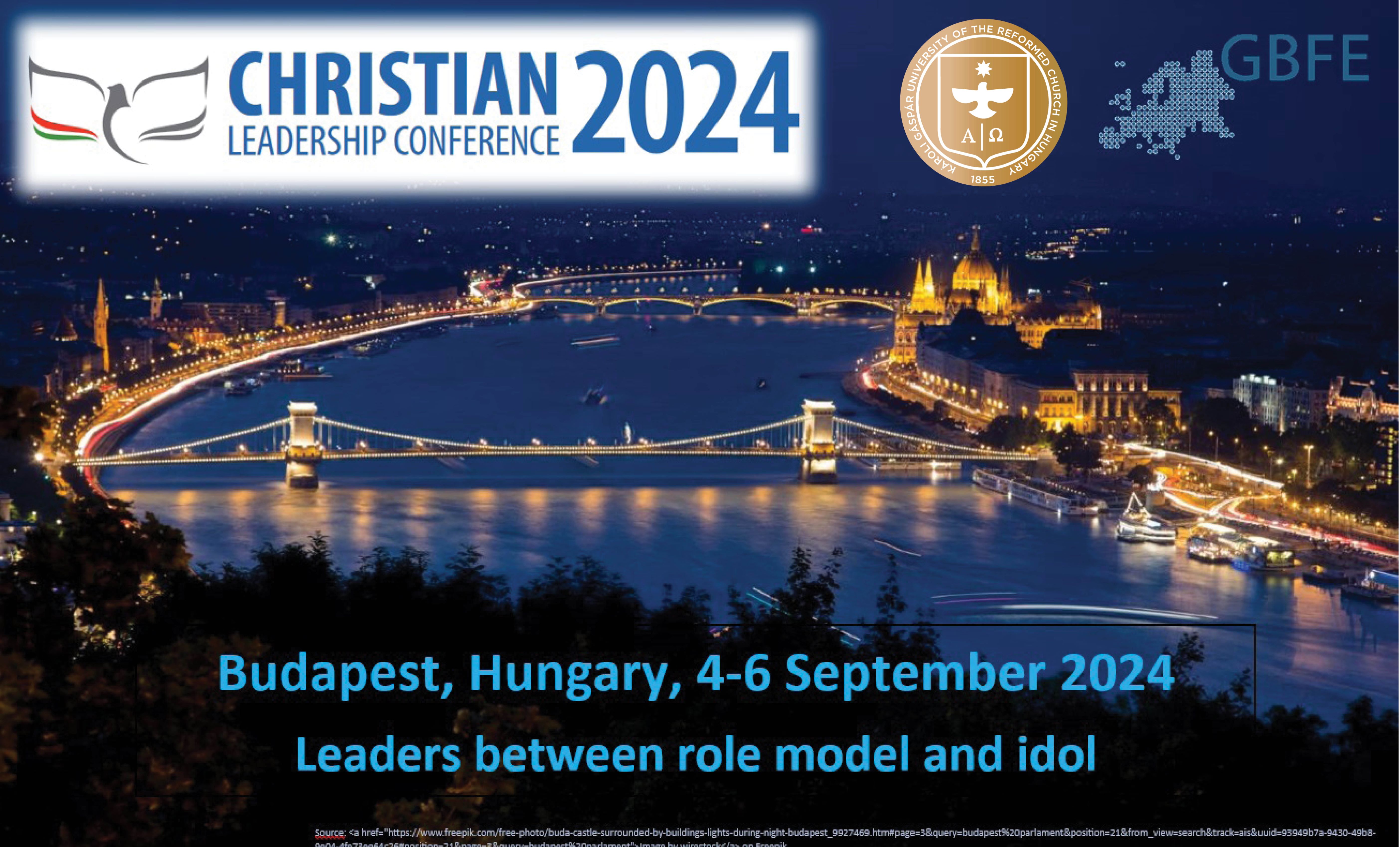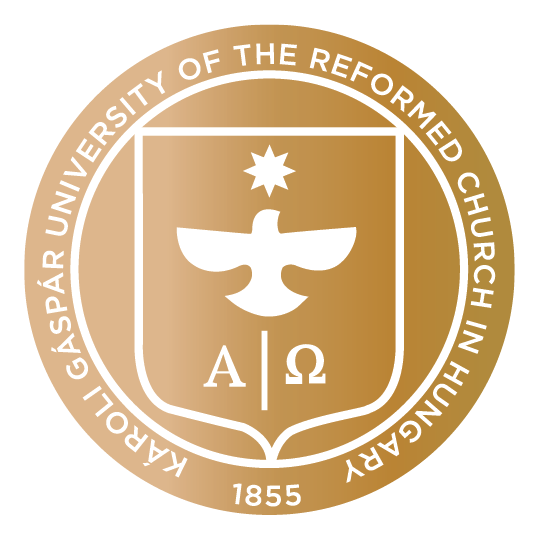Call for Papers
Closed

Christian Leadership Conference in Budapest, Hungary
THEME: Leaders between role model and idol
The seventh Christian Leadership Conference will be held in Budapest, Hungary, from 4-6 September in 2024. Prior conferences were held in Norway, South Africa, Germany, and Belgium.
The 2024 conference will be organised and hosted by the Károli Gáspár University and GBFE (Gesellschaft für Bildung und Forschung in Europa), in cooperation with PTF (Pünkösdi Teológiai Föiskola), KEVE (Keresztyén Vezetők és Üzletemberek Társasága), both Hungary, and AcF (Akademie für christliche Führungskräfte), Germany.
We invite proposals for conference contributions from academics and reflective practitioners representing different disciplines. We welcome insights from varying Christian denominations and other faith traditions.
INTRODUCTION
The current situation in Europe and beyond demands courageous leadership. Researchers describe today’s world as being BANI: Brittle, Anxious, Non-linear, and Incomprehensible. In such a world, leaders are increasingly under the pressure to provide clear orientation and strong guidance. In all spheres of society, we see leaders performing in such a way that they attract many followers. In this regard, someone once pondered: Are the successful CEOs the new saints of our time? In addition, we observe an increasing self-staging of stars and ordinary people on social media. Are these influencers the new gods to whom people bow? The God of the Bible claims: “I am the Lord, your God… You shall not have any other gods besides me.” (Exodus 20:1+2) He warns us of succumbing to idols – and yet humans are yearning for them. Even in Christian contexts, we are not immune to paying homage to idols.
Others react to the BANI reality by offering a rather “quiet” leadership with continuous, steady guidance. They prefer an unagitated approach to pressing questions. Do they understand themselves as role models? Do they follow certain examples for leadership? Still others question whether role models are needed at all. They focus on communal decision making, emergent problem solving, inspiration and innovation.
To position themselves, leaders need to consider two aspects, and inward looking and an outward looking one. Firstly, introspection: What are the deciding factors that determine their self-understanding? What is their own orientation? Which inner examples do they follow? Which image do they want to portray? How do they want to deal with power? Secondly, extrospection: What are the expectations of others attached to such a position? Which roles do others attribute to leaders? In which way do circumstances ask for a certain leadership style?
Leaders between role model and idol – a tension most leaders experience daily. This field of tension needs to be addressed. In seeking to find answers to these questions, we need to consider ethical, historical, cultural, political, socio-psychological, and theological perspectives. Additionally, Christians need to reflect on how denominational formation influences the understanding of leadership.
DEFINING ORIENTATION
This conference aims at identifying, describing, analysing, and developing intellectual input from a variety of perspectives to find answers to the alternatives mentioned above.
We want to invite researchers to present papers that contribute towards reflecting the spectrum between model and idol. This can be done from various perspectives.
POTENTIAL TOPICS
Participants may wish to consider some of the following issues:
- Management sciences can contribute models and theories of various approaches to leadership.
- Theological researchers may begin by identifying examples of different leadership convictions in the church. In addition, a re-examination of biblical perspectives on spiritual leadership could shed a light on the ethical question.
- Social scientists and theorists may identify the societal contexts in which certain leadership styles thrive.
- Psychologists may want to look at the factors contributing towards the development of different leadership preferences.
- Historians may present case studies of leadership experiences from the past.
- Practitioners of leadership are invited to reflect on their own insights and experiences.
ABSTRACTS
Abstracts should be between 150-250 words. They should include author’s information (name, position/function, affiliated institution, and mailing address) as well as three to five key bibliographic sources consulted. Please send abstracts to clc24@gbfe.eu / clc2024@kre.hu. Abstracts should be sent as a separate Word-document with your last name, initial and short title as document name (e.g. Miller, K – Leaders as role models.docx). They need to be received no later than 31 May 2024 in order to be considered.
All abstracts must be submitted in English, nevertheless sectional presentations can be held in English, Hungarian and German as well.
PUBLICATION
The proceedings of the conference will be published with an academic publisher.
DATE AND LOCATION
The conference will be held from 4-6 September 2024, at Károli Gáspár University at 1091 Budapest, Kálvin Square 9. The conference fee will be about 200 Euro, incl. meals. Accommodation is available at hotels nearby.
Please note that the conference will start at 3 pm on Wednesday 4 September , and end on Friday 6 September at 3 pm. More information and registration will be available through the website of https://geszk.kre.hu/clc2024/
